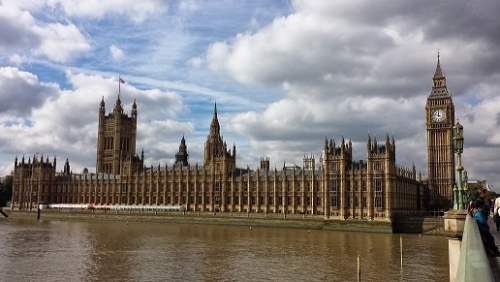Wealth Strategies
Avoid Sterling Today As Brexit Vote Looms, Says Citi Private Bank – Reports

The US private banking group recommends that its clients avoid trading in the pound today because it is likely that big gyrations will occur, depending on the outcome of a crucial vote on Brexit.
Citi Private Bank is urging its clients not to trade sterling today to avoid being burned by a spike in volatility likely to take place when lawmakers vote on Prime Minister Theresa May’s Brexit withdrawal package.
Speculation is rife that if the package – which has been attacked as giving the UK “Brexit in name only” – is voted down, it could prompt calls for May to resign as premier, or even lead to a general election or second referendum. A number of pro-Brexit Conservative MPs oppose the deal and members of the opposition Labour Party are expected to vote against the deal, although a number of them might support it.
“Over the next 24 hours what all we’re going to find out is the degree to which May loses, how much she loses by,” David Bailin, global head of investments at Citi Private Bank, was quoted by newswires as saying at a briefing today. “That is not something that one actually trades on.”
Earlier this week UBS, the world’s largest wealth manager, said it recommended that clients keep to their benchmark position on sterling, rather than take a bullish or bearish bet, because of uncertainties about the vote later today.
Reports said that at least 70 members of the Conservative Party, as well as sometime allies in the Democratic Unionist Party, have vowed to join with the opposition in voting against May’s plan.
The political log-jam stems from how, while a majority (52 per cent) of voters chose in June 2016 to leave the European Union, a majority of MPs had wanted to remain in the bloc. Since the referendum vote, MPs have voted to trigger Article 50, the measure necessary to start a country’s departure from the EU.
A sticking point has been that May’s withdrawal package keeps the UK in the Customs Union, requiring the country to seek EU consent to leave it, and thereby restricting the UK’s ability to do free trade deals with countries around the world. The UK would also stay under the umbrella of the European Court of Justice. To avoid a “hard border” between Northern Ireland and the Republic of Ireland, the agreement also, its critics say, effectively unifies Ireland and takes part of the UK (Northern Ireland) out of the UK.
Defenders of the withdrawal package argue that the EU is unlikely to grant the UK a more flexible deal, particularly because Brussels wants to give the UK a tough exit to discourage other nations from following suit.
